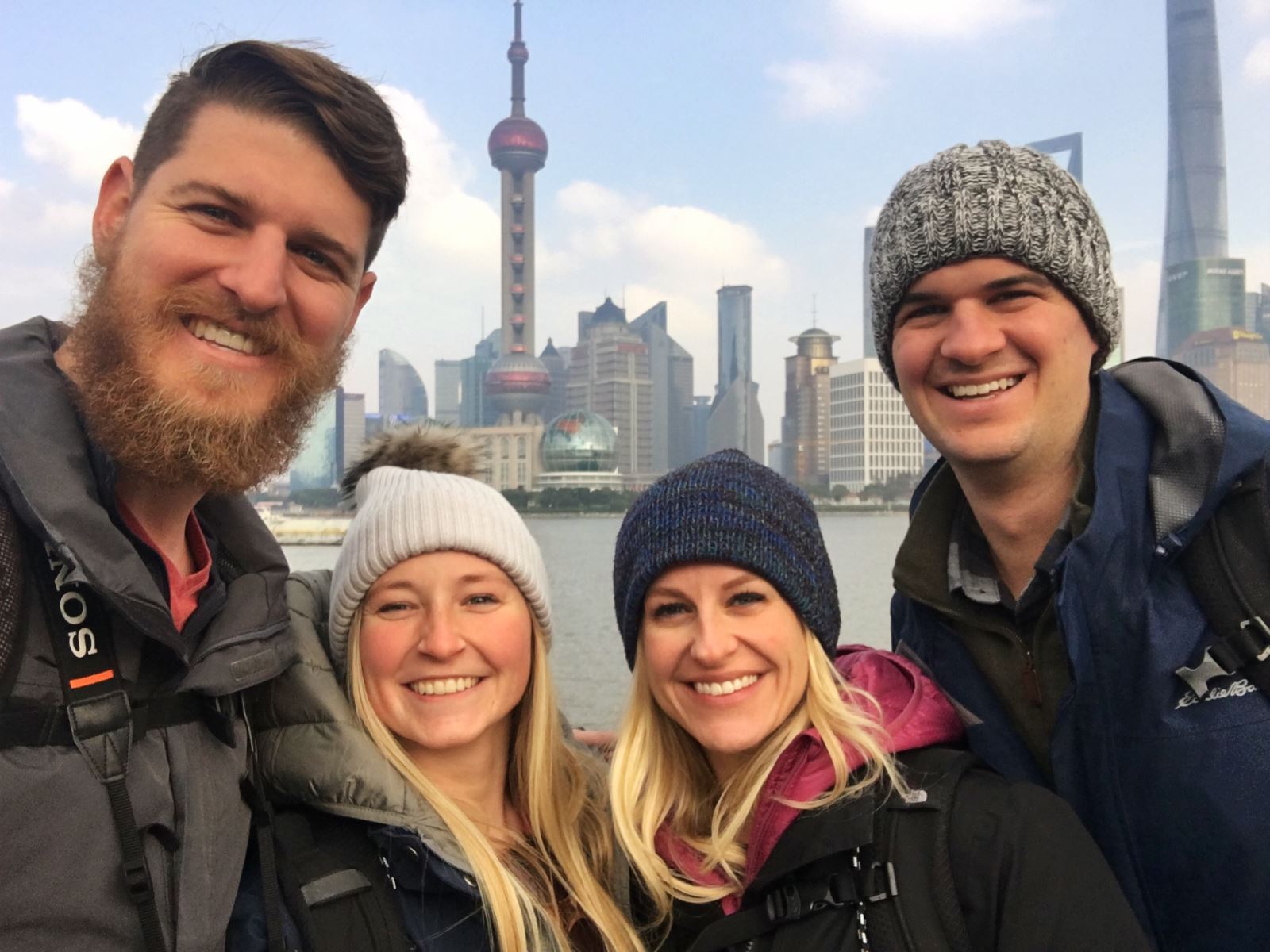- Engineering
- Jon Mark Beilue
Big Innovations in a Small Way
Nanotechnology company making a worldwide mark at WT
Benton Allen, like three other engineering graduate students and one West Texas A&M University dean, is thinking small. No, smaller than that.
No, really small. Like one billionth of a meter, or 1/25.4 millionth of an inch small. It’s called nanotechnology, which is the ability to control atoms and molecules, which are, you know, small.
“It’s really hard to put into perspective how small we’re talking about,” Allen said. But a sheet of a newspaper is 100,000 nanometers thick.
But in thinking small, this group that has formed the startup company BTG Products is thinking big. They are discovering solutions that are impacting the oil and gas industry as well as everyday life.
“The material we’re developing is being used all over the world,” said Dr. Emily Hunt, dean of engineering and professor of mechanical engineering. “Their motivation is not just to make something do something, but it’s truly to make something to help people and improve people’s quality of life. I work with incredible people and incredible engineers. The work they have already done in their short careers is really unbelievable.”
Or as Allen said, “There’s some amazing things going on in Canyon, Texas.” One, in particular, he points to is BTG Products, short for Buffalo Technology Group.
Allen, a 2011 Randall High School graduate, is one of 27 in the master’s program in the school of engineering. He will be the second at WT to receive his master’s in August. The first was this month, Paige Earl-Dodge.
Those two, along with fellow WT grad student Nikolay Essani and Trent Kelly, a Ph.D. student in industrial engineering at Texas Tech University, are working under the tutelage of Hunt in their 19-month-old startup company that is focused on nanotechnology.
“What we’re doing is using really, really small particles to create new materials,” Allen said, “and we’re using them to combat harmful microorganisms – bacteria, viruses, fungi.”
Hunt, who came to WT in 2003, was a graduate student at Texas Tech under Dr. Michelle Pantoya, a pioneer in nanotechnology with weapon systems and energetics.
Later, at WT, a Department of Defense grant allowed Hunt to pursue nanotechnology experimentation in combating anthrax and other bioterrorism gases. There were breakthroughs that the DOD used in some gas masks.
After the grant, WT maintained ownership and could commercialize any inventions. In a way, that led to the formation of BTG Products.
“My perspective is in the area of material science,” Hunt said, “and so what nano has done for us is reinvent material properties. The material in the past you might use in just one way you can now create and build the kind of material you want. It’s really opening up a new field of science and engineering.”
BTG is making an impact most in the oil and gas industry as well as paint material that prevents mold.
Oil producers in horizontal drilling face problems with bacteria in pipes, Hunt said, especially when they come in contact with the natural environment of soil and water. The bacteria causes corrosion in pipes.
“So our material acts as a protective barrier,” she said, “so the bacteria won’t build in one place.”
BTG coded similar material for offshore oil platforms and drilling to prevent marine life and biofilm from causing corrosion and blockage as well preventing larger ocean life from attaching to the platform.
One of the products BTG produced is for consumers. Paint Guard, available on Amazon, can be put in paint that prevents mold from growing on the surface. Mold became a serious issue inside damaged homes when Hurricane Harvey trigged catastrophic flooding in the Houston area in 2017.
“The hope is with these innovations is to develop materials that will help with more efficient, safer, higher quality of life,” Allen said. “That’s our drive at BTG, but on a smaller scale – like preventing bacteria from harming people and keeping costs down on buying gasoline.”
Frontier Capital Group of Dimmitt is BTG’s venture capital supporter. The WT Enterprise Center has supported the company’s commercialization efforts through the Enterprize Challenge.
While their work has taken them to places as far away as Shanghai, BTG’s focus is regionally. From there, its impact has spread.
“The material we’ve developed in the oil and gas industry is being used all over the world,” Hunt said, “but it began right here in this area and the Permian Basin. Dr. Wendler (president of WT) talks about meeting regional needs and taking that to the rest of the world and that’s exactly what’s happened here. Essentially reaching out to meet regional needs is having an impact all over the world.”
That’s noteworthy for a department of engineering that is just more than 15 years old and just this year is graduating its first master’s students.
“When I graduated from Randall, I wanted to go anywhere but WT,” Allen said. “I thought staying in my hometown was the worst thing I could do for my personal growth. But I remember a conversation with my dad who said, ‘If WT was 100 miles away, you’d go in a heartbeat.’ That’s some of the best advice I ever got.
“The professors are not scared to pour themselves into their students. They’re talented researchers, but they’re really good people who care about students. The way Dr. Hunt has built this program has been exceptional. There’s some really cool groundbreaking things happening here right now.”
Do you know of a student, faculty member, project, an alumnus or any other story idea for “WT: The Heart and Soul of the Texas Panhandle?” If so, email Jon Mark Beilue at jbeilue@wtamu.edu.
—WTAMU—

